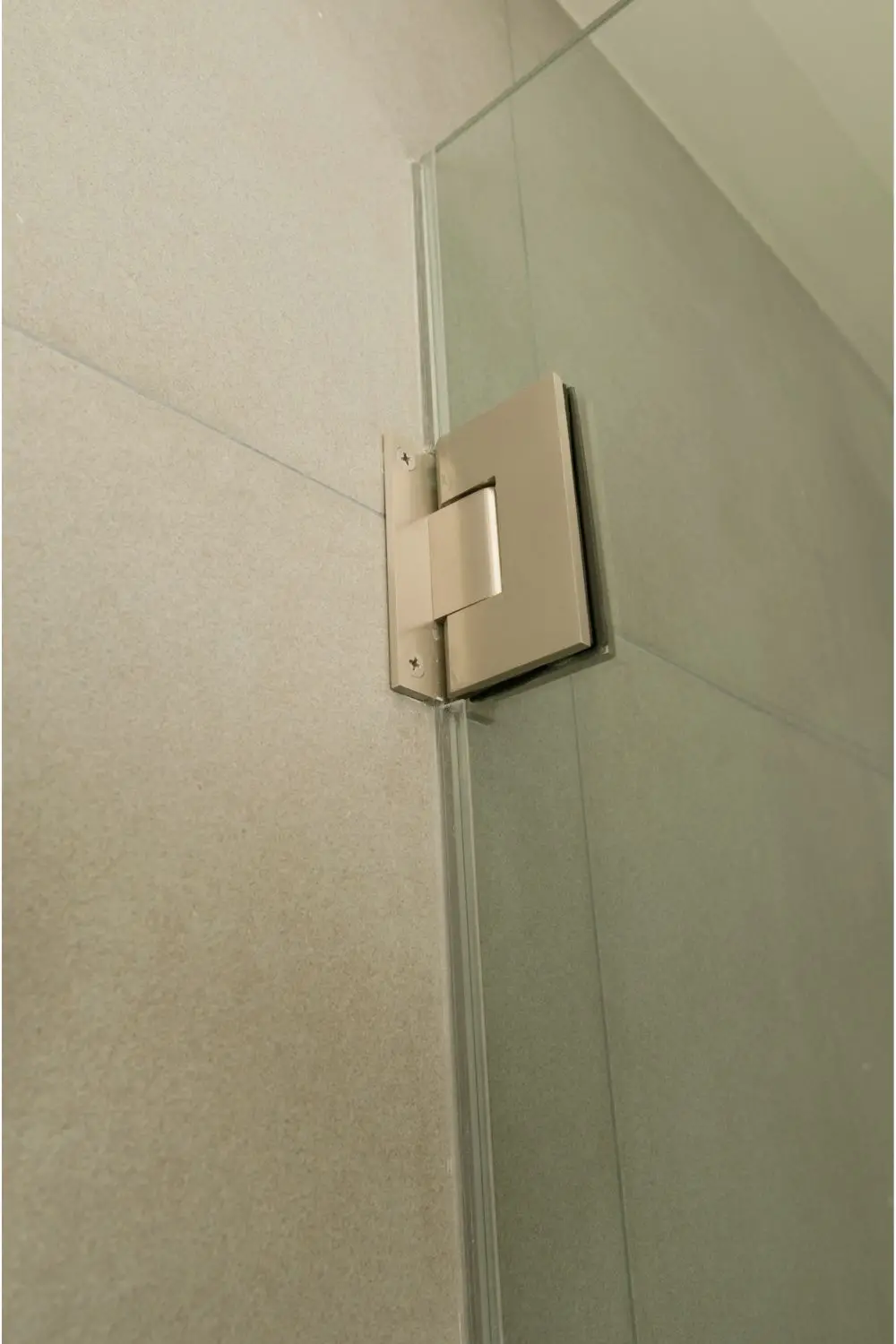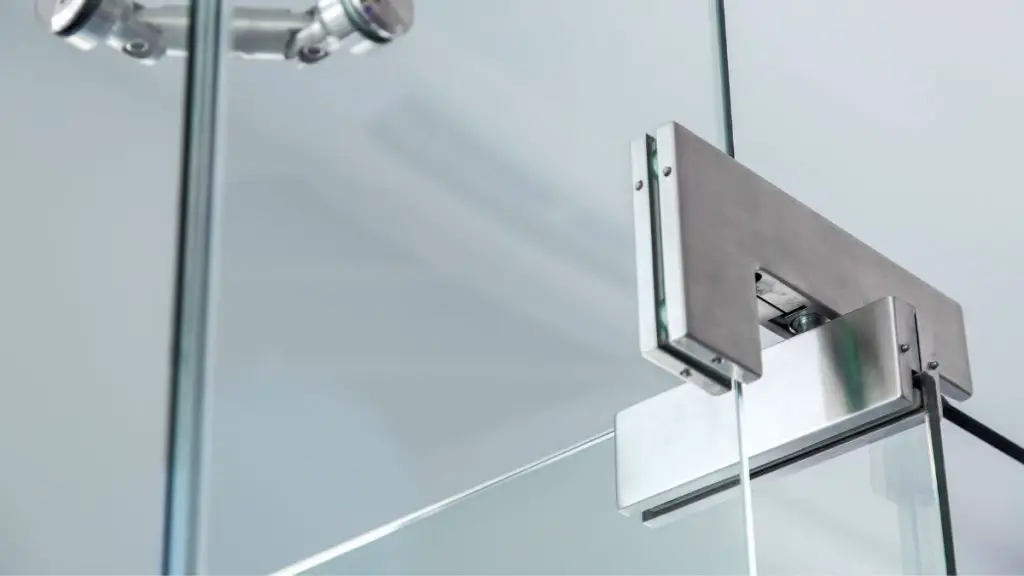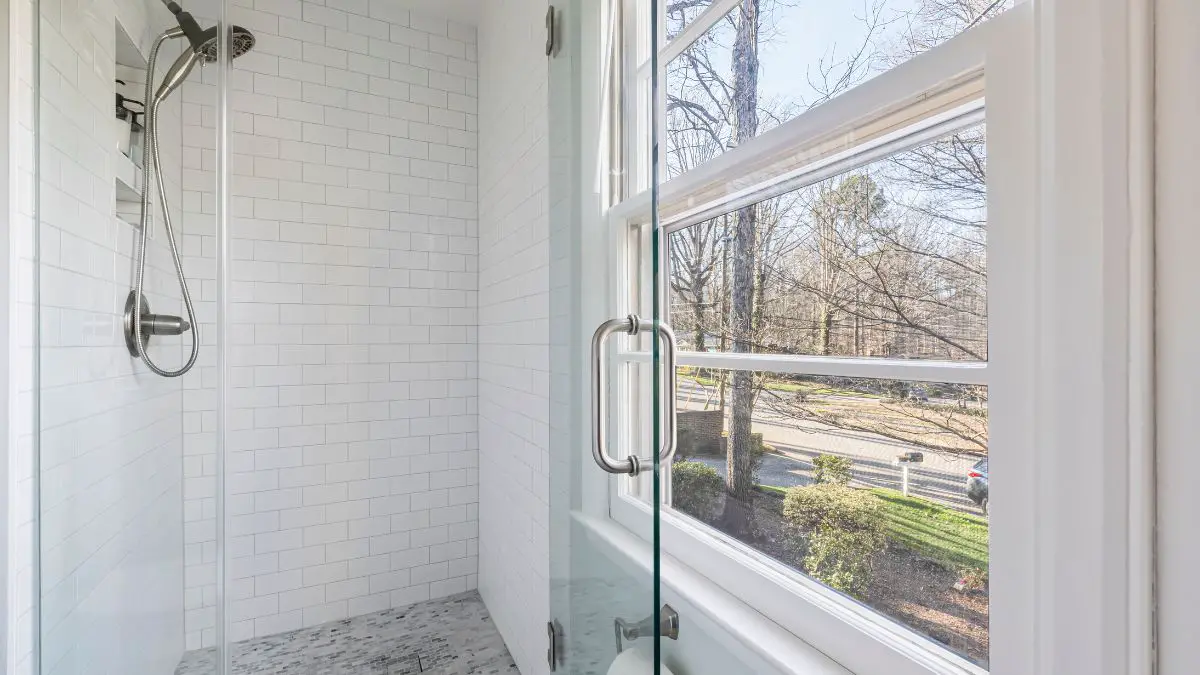Are you looking to upgrade your bathroom with a new shower door? If so, you’ve probably heard of pivot and hinge shower doors. Both are very similar and come in many different styles, sizes, and finishes, but what are the key differences between these two options?
This blog post will compare pivot vs. hinge shower doors and help you decide which type is right for your bathroom. We’ll cover the differences, their benefits, average cost, and installation process.
The Differences Between Hinge and Pivot Shower Doors
Both hinge and pivot shower doors look similar, but have several key differences:
Hinged Shower Doors

Hinged shower doors are the most common and popular type of shower doors on the market today. These doors swing outward, like a regular house door, allowing easy access to the shower or bathtub.
The door can also be made reversible so that it can swing either way, depending on where your sink and toilet are located in relation to the shower unit.
Hinged doors are usually installed with one fixed panel and one swinging panel, so they typically require more space than pivot doors. However, these doors offer excellent water containment since there is only one gap where water can escape.
Benefits
- These doors are generally made from either metal or glass and come in various finishes.
- They can be completely customized to fit almost any opening size and shape.
- They are ideal if you have an oddly-shaped nook or corner in your bathroom, as you don’t have to worry about finding a standard-sized door to fit.
- They provide easier access to the shower than many other types of doors do.
Average Cost
Hinge shower doors range in cost from approximately $700 to more than $1,000, depending on the size, style, and material.
Pivot Shower Doors

Pivot shower doors are another popular option for bathrooms with limited space. Unlike hinged doors, these types of doors can open 180 degrees in either direction and require fewer parts to install. Also, due to the location of the hinges, you have the option of going frameless for a sleek and minimal look.
Since they don’t need as much room as hinged models, they are ideal for small spaces.
However, since there is usually more than one gap around the frame when these types of showers are closed, they may provide less water containment than hinged models.
Benefits
- These types of showers also come in a variety of styles and finish.
- Tend to be more lightweight than their hinged counterparts, making them easier to install.
- Pivot doors tend to be wider than hinged doors, allowing more light into the bathtub area.
- They are easy to install and require very little maintenance once installed since they don’t have any moving parts like hinged doors do.
Average Cost
The average cost for a pivot shower door is $900 to $1,500, depending on size, material, and style.
Which Shower Door Is Right for You?
When it comes to choosing between hinged and pivot shower doors, it really depends on the size of your bathroom, design, and budget.
Hinged shower doors offer excellent water containment and are ideal for larger bathrooms with more space since they swing outward like a regular door.
On the other hand, pivot shower doors are an excellent option for small bathrooms since they require less space. They offer a frameless look if you’re going for a simple and minimal design approach.
Frequently Asked Questions
Can I install a shower door myself?
While it is possible to install some types of shower doors yourself, it’s recommended that you hire a professional for more complex installations. Doing so will help to ensure that the door is installed correctly and securely and reduce the risk of any damage or accidents occurring during installation.
Are shower doors waterproof?
Most modern shower doors are designed to be water-resistant. However, they may be partially waterproof. Therefore, it’s important to take the time to research and choose a door suitable for your needs and use the appropriate sealant around the edges of the door after installation.
Do I need to seal my shower door?
It’s recommended that you use a silicone-based sealant around the edges of your shower door to provide an extra layer of waterproof protection. This will help to protect against any water leakage and keep your bathroom dry and free from mold or mildew.
Are shower doors easy to clean?
Yes, shower doors are generally easy to clean and maintain. You can use a mild soap solution or shower cleaner to remove any dirt or grime buildup, and most glass-based models can be wiped down with a damp cloth.
Final Thoughts
Choosing between a hinged or pivot shower door will depend on the size and layout of your bathroom and your budget. Hinged models provide better water containment and are great for larger bathrooms with more space, while pivot doors are more compact and require less space.
Did you find this post helpful? What shower door did you ended up going with? Let us know in the comments below!


